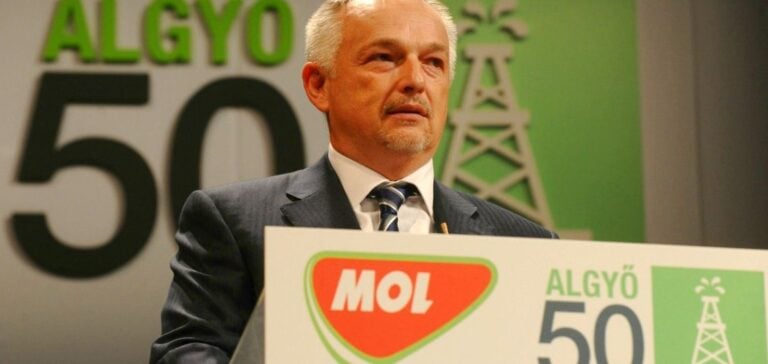Zsolt Hernadi, CEO of MOL, said he sees no advantage for Hungary in weaning itself off Russian oil supplies, while calling warnings about fuel shortages in the country “political”.
Background to European exemptions
Following Russia’s invasion of Ukraine in 2022, the European Union banned Russian oil imports to its member states, granting an exemption to Hungary, Slovakia and the Czech Republic to allow them to find alternative routes and sources of supply.
However, many critics believe that Hungary has not done enough to achieve this objective.
Refineries in landlocked Hungary and Slovakia are supplied with Russian crude via the southern branch of the Druzhba pipeline.
However, in July, deliveries from Russia’s leading oil exporter, Lukoil, via Ukraine were halted after a ban by the Ukrainian authorities.
Ukraine’s decision to block supplies of Russian oil exacerbates supply challenges for Hungary and Slovakia.
Alternatives and challenges
The European Union has suggested that Hungary and Slovakia use the excess capacity of the Adriatic JANAF pipeline in Croatia to source non-Russian seaborne crude.
However, Hungary and Slovakia reacted negatively, claiming that Croatia had not invested sufficiently in building up this capacity and questioning the pipeline’s published maximum capacity.
Croatia called the idea that it was not a reliable supplier “deeply offensive”.
“It’s not politicians, but MOL’s management that decides where to buy oil,” said Hernadi.
“If we decided to stop the supply of Russian oil via Druzhba… Hungary would only have one supply route left (the Adria pipeline). Which is better? Two or one? Which one offers more (supply) security?”
Impact on supplies
Hungary receives 2 million metric tons of oil from the Russian group every year, around a third of its total oil imports.
The Slovnaft refinery in Slovakia, owned by the MOL group, is expected to receive 40% less oil than it needs for processing, according to the Slovak government.
When asked if fuel shortages could occur in September if the problem was not resolved, Hernadi dismissed the idea as “politics” and assured that “until MOL sounds the alarm, there is nothing to worry about”.





















